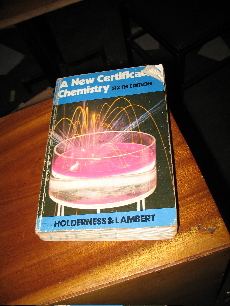November 2006
Living history
I’ve been having a satisfying year making money out of colonialism.
Not much money because my fee, I’m told, is small. The irony is that if I doubled it I would probably get double the offers of work as donors tend to judge quality not by the quality of work done but by the size of fee charged.
Africa has, at the insistence of the donors and UNESCO, expanded primary education to include everyone and now suddenly finds it has vast numbers of unemployed youngsters that have just enough education to be awkward but not enough to be useful, and governments dont know what to do with them. So they pack them all into to existing secondary schools where they fail in spectacular numbers.
And that’s where I come in; a member of a Secondary Education A-team. No problem is too big it cant be solved in two weeks at the local Sheraton.
African secondary education is living history. It dates back to the height of the British Empire. It is phrased in the language of the twenties; standards, repeating years, staying back.
It was set up throughout the pink bits of Africa to fail all but the very best who were then rewarded with the privilege of helping their colonial masters run their country for them. It has survived through decades of colonialism, independence, dictatorships and military misrule and into the modern democratic era not only totally unspotted but raised high on a pedestal of quality, a bit of naked colonialism before which the knee is still quietly and reverentially bent.
As one Ugandan official put it; 'it has stood the test of time'.

The cover may be a bit flashier but its the same one. Its the final version of 'School Certificate Chemistry' that we all used at school in the fifties.
When I was a child Arthur Holderness was Head of Chemistry at Archbishop Holgate's Grammar School in York, very much the sister school of my school, Tadcaster Grammar, for the last 450 years. How many of us got our O-levels by learning the bits in heavy type? ('When two or more gases combine together they do so in volumes which bear a simple ratio to each other and to the product, if gaseous'; for the uninitiated, the answer to the eternal O-level question State Gay-Lussac's Law of Combining Volumes.). As a Nigerian reviewer put it 'you are bound to get excellent results if you do all the exercises'.
Available at all good antiquarian booksellers for around ten pounds, or on the school library shelves of Africa
A
fellow worker tidying up the legacies of modern civilisation; one
of many Marabou in trees outside the window where I worked in Kampala.
He recycles the city's rubbish. |
 |